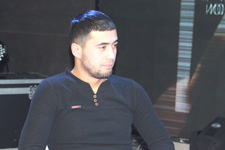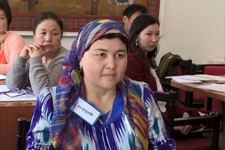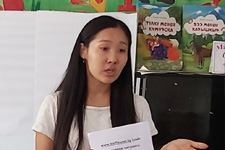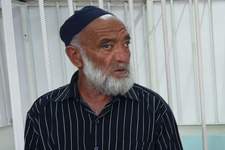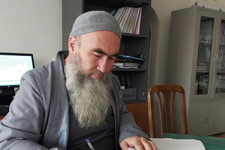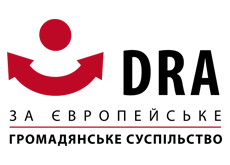Based on the results of the joint meeting of the Board of Directors of the Human Rights Movement "Bir Duino Kyrgyzstan", the Code of Conduct of the Global Network of Non-Governmental Organiza
03.09.2020
Press release
Based on the results of the joint meeting of the Board of Directors of the Human Rights Movement "Bir Duino Kyrgyzstan", the Code of Conduct of the Global Network of Non-Governmental Organizations for Disaster Risk Reduction (GNDR), of which it is a member, was adapted for the purpose of further implementation by all interested state bodies, public organizations, local governments, community leaders in the regions and experts at all levels and fields of activity.
The main task of GNDR and its 5-year strategy is to promote the voices of leaders of local communities to the state level in order to develop concrete ways to solve problems and overcome crisis situations, together with the involvement of experts. In its ongoing work, the global GNDR network is based on the Code of Conduct, which is the fundamental and fundamental legal document for conduct in professional work.
It is extremely important to note that the implementation of the adapted GNDR Code of Conduct will improve the activities of beneficiaries in the timely identification and prevention of social, economic and environmental risks and threats to the local population living in potential risk areas, such as regions with uranium tailings, areas with a high risk of collapse. mudflows, seismic activity, flooding threats.
Based on the results of the integration of the adapted GNDR Code of Conduct for government agencies among experts, LSG bodies and NGOs, in the very near future it will be possible to increase their professionalism and collective responsibility to the population of the country, improve the quality of services provided, intensify work on monitoring the processes of human rights observance in Kyrgyzstan, ensure fulfillment of functional duties to society, resolve controversial issues in the performance of government agencies of their work, as well as reduce the number of cases of abuse of authority and offenses.
Adapted GNDR Code of Conduct
- INTRODUCTION
The Global Network of Civil Society Organizations for Disaster Risk Reduction (GNDR) is committed to operating to the highest standards in a spirit of integrity, accountability and transparency. The GNDR Code of Conduct was adapted by the human rights movement "Bir Duino Kyrgyzstan", a member of GNDR, for the Kyrgyz Republic so that the state bodies of the Kyrgyz Republic, the media, political parties, leaders of local communities, NGOs, experts and human rights defenders have a clear understanding of the standards of observance of rights the person, behavior and performance to be followed; and our zero-tolerance attitude towards harassment, bullying and sexual or any other form of violence and discrimination.
The Code of Conduct is also designed to improve working conditions, retention and incentivize staff, protect employees from exploitation and abuse, physical injury, and protect the rights and ensure the successful operation of organizations in the Kyrgyz Republic. The Code of Conduct contains a set of minimum standards that are part of our commitment and responsibility for the well-being and personal safety of everyone and, along with our health and safety policy, are designed to protect local communities from potential risks in the Kyrgyz Republic.
2. SCOPE AND PURPOSE
This Code of Conduct applies to all representatives of the civil society of the Kyrgyz Republic interested in eliminating discrimination and human rights violations. The Code of Conduct establishes, as a minimum requirement, the obligation of everyone not to exploit, abuse or otherwise discriminate against anyone, and must be signed by all who advocate the rule of law and freedom of human rights.
2. GNDR VALUES
GNDR's core values guide the way in which GNDR works and interacts with its members and other partner organizations.
● Trust and willingness to listen, share and learn from each other, which allows us to reach consensus and mutual understanding;
● Transparency and mutual accountability;
● Fairness and respect for different individuals, needs and points of view;
● Commitment to working together in a spirit of collaboration, inclusiveness and shared participation.
4. INDIVIDUAL AND COLLECTIVE RESPONSIBILITIES
4.1. Duties
You are expected to:
perform at the proper level your functional and job responsibilities as set out in your contract and job description, and ensure compliance with all policies and procedures related to your area of responsibility;
● dress appropriately for office work or out-of-office events, and have a clean and tidy appearance;
● comply with any reasonable direction given to you by the relevant supervisor in relation to the performance of your job responsibilities;
● be authorized by your organization for what you write, say, or email;
● be present at work in good condition, be able to perform work, and not be under the influence of alcohol or any illegal substances;
● declare any potential or actual conflict of interest or bias, including but not limited to current or previous relationships with member organizations or potential member organizations;
4.2. Responsibilities towards those with whom we work
You are expected to:
● support and encourage colleagues to achieve the organization's standards and targets;
● maintain open and professional relationships with each other;
● value and welcome diversity in terms of gender, culture, religion and political beliefs;
● take an active part in working meetings;
● respectfully and proactively listen to others and handle disagreements professionally;
● do not engage in intimidation, do not behave in an offensive manner towards colleagues;
● help create and maintain an environment that prevents sexual exploitation and abuse, as well as fraud and corruption;
4.3. Responsibilities towards the communities for which we work
You are expected to:
● respect and support the safety, security, dignity and rights of people;
● report any suspected sexual exploitation and abuse by employees, board members, trustees, member organizations and partner organizations;
● respect the cultural, gender, social and political relationships of local communities;
● actively avoid the undesirable consequences of our work on the livelihoods of people and the local economy.
5. Integrity and dedication
An organization's performance and reputation depend on the performance and behavior of its employees, board members and trustees. Therefore, you are expected to:
● honestly perform all duties and strive to achieve a high level of professional responsibility and achievement;
● optimize the use of resources;
● to minimize any negative impact on the environment;
● be aware of the richness of the multicultural environment in your workspace and appreciate the unique skills and perspectives of each person, including people of different cultural backgrounds and educational backgrounds;
● help to remove barriers to gender equality and ensure that activities are gender-sensitive;
6.1. Bullying and harassment
GNDR believes that all members of civil society, including the Kyrgyz Republic, have the right to work in an environment free from intimidation, discrimination, coercion and behavior that may interfere with the creation of a favorable work environment or employment opportunities.
GNDR does not tolerate any violent action or threat of violence from or against civil society, including the Kyrgyz Republic, at any given time.
GNDR believes that every citizen, including the Kyrgyz Republic, with whom we come in contact, regardless of gender, age, gender identity, disability, sexual orientation, ethnic origin, religion or caste, has the right to be protected from all forms of harm. abuse, negligence and exploitation. GNDR is committed to providing a healthy and safe work environment that protects children and vulnerable adults from any harm that may result from their direct or indirect contact with GNDR through suppliers or other subcontractors. This also includes protecting against harm caused by the conduct of employees or personnel associated with GNDR, as well as the design and implementation of GNDR projects and activities.
The norms of sexual behavior vary around the world. Taking into account the local cultural characteristics of the Kyrgyz Republic in these matters is extremely important. Parties to the Code of Conduct must conduct themselves in accordance with accepted international human rights standards and laws regarding sexual behavior. GNDR will take all necessary steps to prevent sexual exploitation or abuse of anyone by its employees, board members and trustees in order to protect vulnerable individuals and communities.
7. VIOLATIONS
All parties to the Code of Conduct must refrain from committing any wrongful misconduct. The sections below outline general categories of prohibited acts and provide examples of specific acts that GNDR considers misconduct or gross violation, depending on the seriousness of the act. Generally, any act of “abuse of power” is considered a gross violation.
GNDR expects all members of the Kyrgyz civil society to comply with national and international laws. Employees are required to bring any concerns to the attention of GNDR in accordance with the Whistleblowing Policy.
7.1. Abuse of authority
Abuse of authority is defined as “The abuse of position or excess of authority or influence, or the misuse of discretionary authority for one's own benefit or for the benefit of another. Abuse of authority includes, but is not limited to: favoritism, nepotism, nepotism, corruption, bribery and all forms of exploitation, including sexual exploitation. ”
Actions that would be considered an abuse of power and subject to disciplinary action include:
● Any action that could be regarded as harassment, banditry, bullying, discrimination, racism, or misuse of official authority;
● Unauthorized use of your official position to commit acts that impose a legal, financial or moral obligation on your organization;
● Theft or misappropriation of funds, property, or human resources from your organization;
● All forms of exploitation and abuse.
7.2. Fraud and corruption
GNDR is committed to promoting and maintaining the highest level of ethical standards in all of its activities. Its reputation as an organization adhering to legitimate business practices is paramount.
We have a zero-tolerance policy on fraud and corruption, believing that fraud is contrary to the fundamental values of integrity, transparency and accountability and undermines organizational effectiveness. Disciplinary action will be taken against such actions.
The practice of business corruption, including concealment or lack of full transparency regarding any potential conflict of interest with a participant, project partner, any service provider or business partners (including close family relationships, agreements with shareholders, etc.) is prohibited.
OBSERVANCE OF THE CODE OF CONDUCT
1. Raising awareness
Parties adopting an adapted GNDR Code of Conduct are required to familiarize themselves with the Code of Conduct, its purpose and mechanisms for reporting non-compliance. The code of conduct will be a component of the formal induction and will be considered in other relevant training and briefings.
2. Confirmation of receipt
I declare that I have read, understood and agree to abide by the adapted GNDR Code of Conduct and that I will abide by it in all my professional activities.
FULL NAME:
…………………………………
Signature:
…………………………………
Date:
…………………………………




